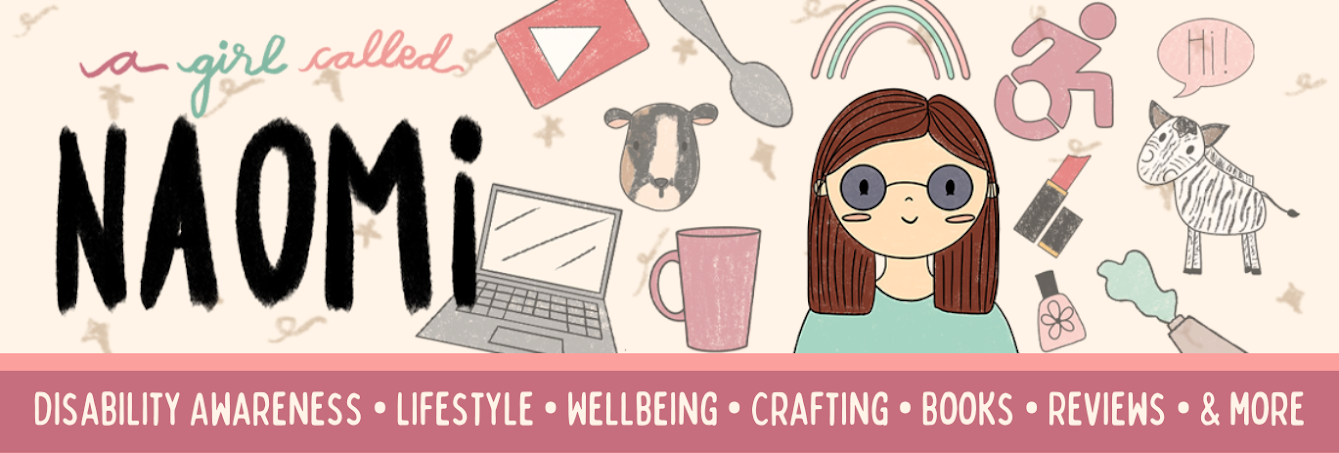This month we see the first ever FND Awareness Month (which is pretty exciting).
FND has affected my life a lot over the past 6 years, though it's now not my 'main' illness. I think it's great that FND, Functional Neurological Disorder, is getting more of a spotlight. Especially so because from living with the condition I know first hand how very little understanding of the condition there is and for me this has lead in my life to some very negative experiences especially amongst care professionals who don't understand the condition correctly or have the most up-to-date knowledge as Georgina writes about below.
FND is basically where the brain's messaging system doesn't work as it should. The best way to try an explain FND is that your brain which is the hardware is fine, but the software doesn't work so well or not at all resulting in a wide range of neurological symptoms.
It's important to note that FND affects everyone uniquely; with it being a neurological disorder and the fact that as many people know there are many things that can go wrong with the brain the list of symptoms that come with FND is quite a long list. Some people may only experience one or two symptoms whilst others may experience a multitude of symptoms, but regardless of how many symptoms a person may have we're all struggling together and we need to be listened to and get the help we need.
Georgina's Story Hi! I'm Georgina and I'm living with a chronic illness called FND which developed after a trauma.
Hi! I'm Georgina and I'm living with a chronic illness called FND which developed after a trauma.
To better understand FND you can watch my How I explain Functional Neurological Disorder - see video below; there are other videos about my life with FND on my YouTube channel too if you would like to learn more.
How FND affects my life
FND affects every single aspect of my life. It dictates whether or not I can get out o bed, the clothes I can wear to the mobility aids I have to use. Due to FND, specifically my intermittent paralysis I have to use a wheelchair when I go out as I can't walk far. I've also had my driving license suspended due to having non-epileptic seizures which is another of my symptoms. There is little I can do by myself. Yet somehow, living with FND is possibly the best and worst thing that has ever happened to me. It's hard t explain and I don't expect anyone to understand. If I wasn't going through all of this I wouldn't;t be who I am today and I am thankful for that.
What I wish I knew before being diagnosed with FND
I wish I knew how much people blamed me for being chronically ill. I'm not in control of my body or my brain. People ay that my brain is 'just playing tricks', but that's not right. When you have FND the signals to parts of your body are impaired meaning that they get sent to the wrong place or don't get sent at all. I don't control these signals and it's not my brain purposely sending those wrong signals.
Sometimes doctors in the past have used the term 'psychosomatic' (which is a very outdated understanding of FND) instead of 'functional'; this makes understanding FND more difficult as it implies that FND is under the patient's control and it is a mental illness. This is NOT the case all all!
The invisibility of living with FND
On the outside and even inside my brain, I look like a normal 18 year old. I'm far from that. My life since developing FND has been a torrent of things from blood test to all sorts of different types of scans as well as all the medication I need to take. Yet despite all of these test the results have always come back clear. I've seen countless medical professionals from paramedics to various doctors in different specialities and I've had several hospital admissions. Unfortunately I've had doctors not believe me, blaming my symptoms on things like anxiety.
The invisibility is that you can't see that my brain doesn't function properly which is the difficulty in having an invisible illness.
#LetsTalkFND
Georgia is also taking part in my blog's #LetsTalkFND awareness event where she answers a question each day about living with FND to help raise some much needed awareness around FND and understanding of how it affects individual's uniquely.Each day Georgina makes a post on either her Instagram or YouTube channel in response to that day's question.
Question's include: 'I am ___ despite FND', 'FND in one word', 'Gratitude', 'Dear FND...', 'FND in three emojis' and 'inVISIBLE disABILITY'
If you want to join in it's not too late.
